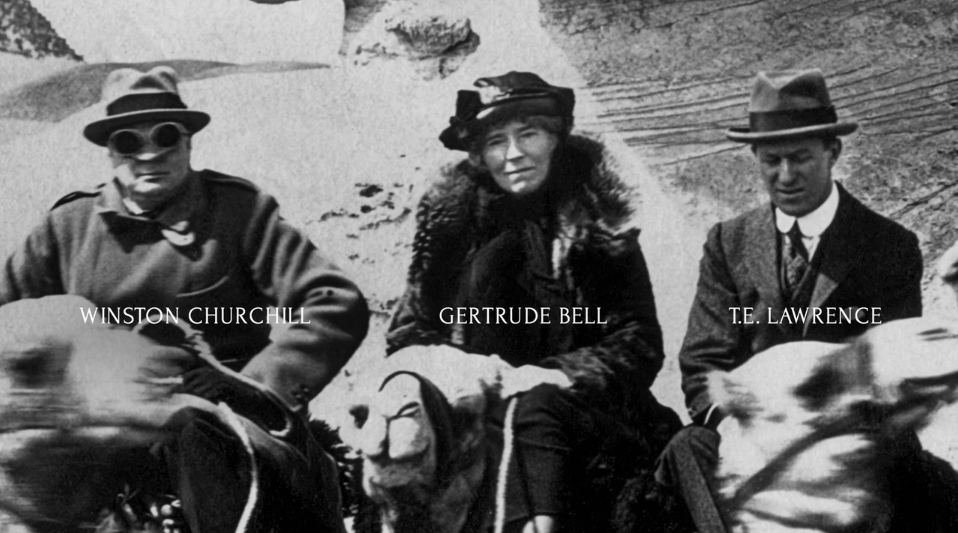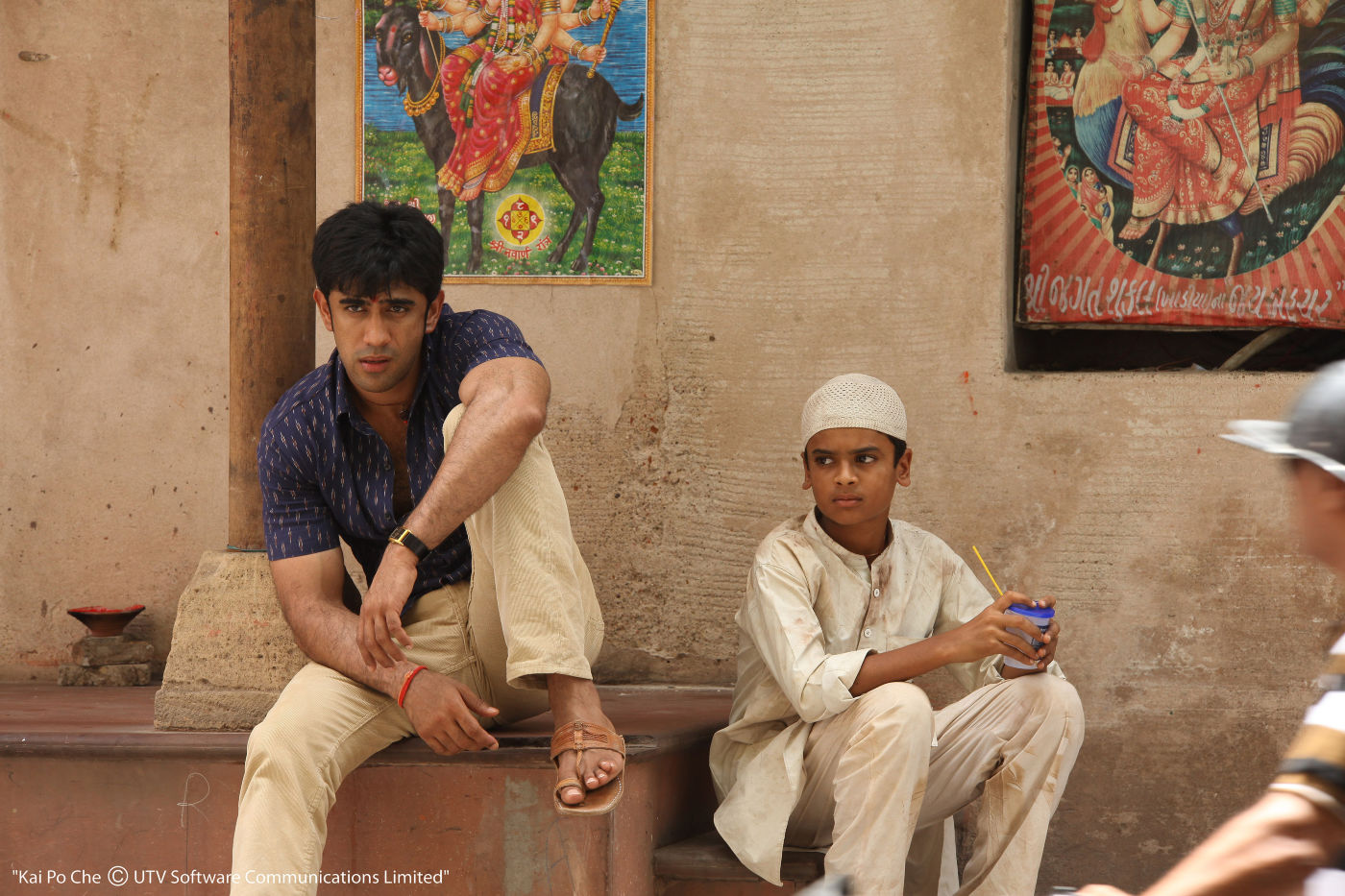I’ve had some good naps in my lifetime, but I believe Letters from Baghdad might take the cake. Sure, the average Transformers film will knock you out. Yet there’s a chance a loud explosion of some sort might rouse you temporarily. Historical documentary Letters from Baghdad combines a lack of visual excitement with dark b&w cinematography and almost a complete void in conflict. There’s nothing in this film that might impede a good slumber. Funny thing is there would be some healthy conflict in a film set in the Ottoman Empire during World War I if it didn’t choose to focus entirely about one person, the underrated Gertrude Bell.
Gertrude Margaret Lowthian Bell gave up a glorious life of being English 24/7 to explore the Middle East in the late 19th century and never returned. She became likely the foremost white authority on tribal knowledge in the Middle East and drew the boundaries for what became modern Iraq. She founded the antiquities museum that was looted and destroyed in Operation Iraqi Freedom and she might have been a spy. And that’s pretty much it. And believe me when I say the presentation of these potentially attention-grabbing details was drier than the Arabian Desert.
This documentary combines two types of black and white photography: the first is stills or clips of grainy historical footage; the second is face-the-camera confessionals from actors portraying Bell contemporaries. The screenplay and subsequent actions/reactions in the film are derived from a collection of letters Gertrude Bell (voice of Tilda Swinton) sent back home to her father.
How would you like to be judged entirely on the things you said to your father? Think about that one a second. Imagine the entire breadth of character lost here all because Gertrude’s audience consisted entirely of “dad.” Well, of course, how could this not be a complete picture? I mean we know from modern internet forum posting how people are exactly and completely who they represent themselves to be in writing, no? IMHO LOL IDK
Mostly, Letters to Baghdad seemed to miss the caravan whenever presented. The film wanted to draw parallels between the forming of Iraq as a state following the Great War and the problems we still have today – well, go ahead and draw them, movie. I’ll wait. Here’s the woman who set the boundaries on her knowledge of tribes; could you at least tell us why she drew the lines she drew? At another point, I was sadly conscious enough to catch a report Ms. Bell sent to English army intelligence detailing the extensive knowledge of tribal issues within the region. Chapters like “Conflict in Mosul” and “the Kurdish Question” are  still themes 100 years later … so let’s open this report up, give us the highlights. Did Gertrude Bell foresee the same quagmire we know about today? You’re not going to tell us. Hmmm … guess we’ll have to imagine her point-of-view. Ok.
still themes 100 years later … so let’s open this report up, give us the highlights. Did Gertrude Bell foresee the same quagmire we know about today? You’re not going to tell us. Hmmm … guess we’ll have to imagine her point-of-view. Ok.
It is easy to see how this film got made – some big-pocketed champion exclaimed that if T. E. Lawrence is a household name, then by gum, Gertrude Bell ought to be on a lunchbox, too. This particular championing ignores the fickle nature of history – the only reason I and many others know the name T.E. Lawrence is because I’ve seen a film about his life. This is the same, and only, reason I can correctly identify Forrest Gump, Norma Rae, and Van Wilder. Like Lawrence of Arabia, Letters to Baghdad has a bit of a white savior complex, something that went over better in the 1960s than it does today. I see this picture as the loving creation of a busybody who wanted to give the world a treat it didn’t ask for – like the tunnel-visioned father who spent hours upon hours carving a rocking horse for Christmas only to discover that his daughter is into Wonder Woman – something he probably should have noticed several months ago.
♪This was the boundary I planned
Yes, my intention
I got so brave, pen in hand
At invitation
It took what? Knowledge true
Just want to make a map
I’m curious for that
British invasion
I drew Iraq and I liked it
With haste resembling slapstick
I drew Iraq just to try it
Hope the Arabs don’t mind it
Include some Kurds
Include Sunnis
Did not forget the Shi’ites
I drew Iraq and I liked it
I liked it♫
Not Rated, 95 Minutes
D: Sabine Krayenbühl, Zeva Oelbaum
W: (Gertrude Bell)
Genre: Historical empathy
Type of person most likely to enjoy this film: The estate of Gertrude Bell
Type of person least likely to enjoy this film: Iraqis
♪ Parody inspired by “I Kissed a Girl”



